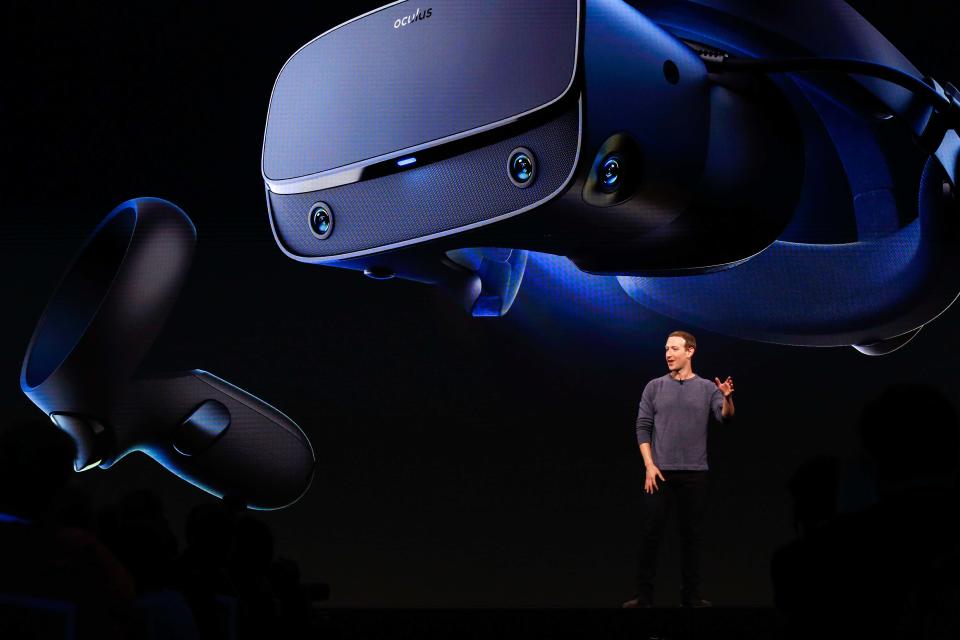Mark Zuckerberg says we ‘should be teleporting, not transporting ourselves’ as Facebook founder discusses the future of work

Mark Zuckerberg made a brief appearance on the audio-only social network Clubhouse to talk about the future of augmented and virtual reality.
Clubhouse, an invite-only platform where people join essentially large group calls, recently hosted SpaceX CEO Elon Musk and Robinhood CEO Vlad Tenev, who spoke about the Gamestop stock market crisis.
The Facebook founder spoke on the company’s AR and VR developments saying that its research into the space – from Facebook Reality Labs – is about delivering presence without physical travel.
Mr Zuckerberg said, according to venture capitalist Josh Constine, that the main challenge for these technologies is that they require a form-factor that users will expect, such as thick-rimmed glasses. The challenge is making the technology small enough to fit that body.
Facebook apparently has a roadmap for development of VR and AR technologies – expected to take four to five years – and that the such technology could be used in remote working environments.
Speaking about the coronavirus pandemic, Mr Zuckerberg said that lockdowns have revealed that there is no reason for employers to tie recruiting employees to physical locations and offices – hypothesising that VR and AR could unlock the ability for people to live where they want while being ‘present’ where they need to be.
WATCH: How social media is impacting Democracy
Other benefits include more productive workers, the CEO added, and reducing carbon emissions. “We should be teleporting, not transporting ourselves”, Mr Zuckerberg concluded.
In 2020, Facebook demonstrated its steps towards remote working in virtual reality.
Andrew Bosworth tweeted that the company is “supercharging remote work and productivity” by creating a mixed reality environment.
In the tweet, Mr Bosworth shows floating displays that can be moved and re-sized via gesture control, as well as the user typing on a keyboard with a virtual taskbar over it for shortcuts, including the Windows icon and Facebook.
As we think through supercharging remote work and productivity, we've been working on mixed reality concepts that builds on existing technologies like Passthrough to allow people to switch between real and virtual worlds pic.twitter.com/cJCEXDxC7b
— Boz (@boztank) May 21, 2020
Mr Zuckerberg predicts that half of its workforce will likely work remotely over the next decade.
“We need to do this in a way that’s thoughtful and responsible, so we’re going to do this in a measured way," he said.
"But I think that it’s possible that over the next five to 10 years — maybe closer to 10 than five, but somewhere in that range — I think we could get to about half of the company working remotely permanently”.
Facebook also recently brought its Messenger platform to the Oculus Quest and Quest 2, the company’s virtual reality headsets.
“Write messages however you’d like, whether typing them out in VR, selecting a pre-written conversation starter, or using our voice-to-text feature”, Facebook said.
The move further ties Facebook and its subsidiary together. In October, the company required that users sign up with Facebook if they are using a headset for the first time.
WATCH: Easy budgeting tips for when you leave home
Read More
What is Clubhouse and how do I get involved?

 Yahoo Finance
Yahoo Finance 